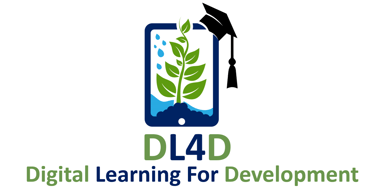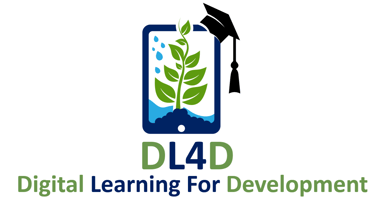Agentic AI in Action : Real-World Use Cases Across Industries
An important change in artificial intelligence is represented by agentic AI, which moves from reactive to proactive decision-making. Agentic AI makes decisions, plans, and does things on its own with little assistance from humans, in contrast to classical AI or chatbots that wait for commands. These intelligent agents can autonomously plan workflows, break down difficult problems into manageable parts, and adjust based on results in a variety of industries, including healthcare, logistics, customer service, and finance. From autonomous IT service resolution at frontline businesses to predictive maintenance systems at Siemens, this transformative skill is already being used in real-world applications and has the potential to revolutionize efficiency and innovation in the years to come.

Use cases of Agentic AI
Healthcare
Agentic AI in the healthcare sector refers to the use of AI systems that have the ability to act autonomously or semi-autonomously in decision-making processes, enabling them to take actions based on analysis or predictions without human intervention. These systems are designed to make decisions, recommendations, or perform tasks to improve patient outcomes, operational efficiency, and resource allocation.
Over the next five years, the global market for agentic AI in healthcare is anticipated to expand at a rate of 35–40%. The move toward preventative care, the growing need for individualized healthcare, the quick development of AI, and the growing use of AI in diagnostics are some of the main forces behind this trend.
The healthcare sector is undergoing a change thanks to agentic AI, or AI systems that can make decisions on their own. This technology offers individualized care, predictive insights, and operational efficiency.
The market is divided into three segments: end users (pharmaceutical firms, healthcare providers), application (patient monitoring, customized healthcare, workflow optimization, and clinical decision support), and offering (software, services).
The use of agentic AI solutions is being further accelerated by the increased focus on individualized healthcare. Healthcare professionals can create individualized treatment regimens based on patient profiles by utilizing real-time data and predictive analytics. As an illustration of the growing emphasis on precision medicine, the use of AI-driven patient monitoring systems grew by 28% in 2023 compared to 2022. Additionally, medication development processes are being accelerated by pharmaceutical corporations through the integration of Agentic AI, which lowers time-to-market and increases clinical trial efficiency.
Use cases in the field
Workflow Optimization Using Agentic AI Integration
AI-powered solutions are being used by healthcare practitioners more frequently to optimize clinical and administrative processes. More than 40% of US hospitals stated in 2024 that they were implementing AI-driven workflow solutions to improve operational effectiveness and lower burnout among staff.
Growing Investments in Clinical Decision Support Systems Driven by AI
As they help medical practitioners diagnose and prescribe treatments, clinical decision support systems, or CDSS, are becoming more and more popular. Global investments in CDSS technologies increased by 15% in 2023 compared to the previous year, indicating a rising dependence on AI for important decision-making.
A greater emphasis on patient monitoring
AI-powered patient monitoring technologies that offer continuous, real-time health tracking are revolutionizing the way that care is delivered. From 2023 to 2024, the use of remote monitoring tools increased by 32%, driven by the growing prevalence of chronic diseases and the increasing demand for proactive care management.
Customer Service
In the context of customer service, agentic AI refers to AI systems that manage client interactions, resolve problems, and offer individualized support in addition to helping with duties. Without direct human participation, these AI systems may learn from previous contacts, make choices and take action based on consumer data, and adjust to changing customer needs. Further, agentic AI can significantly enhance the customer service sector by automating tasks, improving efficiency, and offering personalized experiences.
Use cases in the field
24/7 multilingual Virtual Help
AI-driven chatbots offer 24/7 customer service, responding to questions about products, helping with returns, and troubleshooting in real time. Agentic AI guarantees that customers receive prompt support without the need for a human agent's interaction by optimizing customer service.
Omnichannel Experience
By providing smooth and uniform assistance across every touch point, the agentic system may integrate consumer interactions throughout mobile applications, in-store experiences, and online platforms.
Sentiment Analysis
To determine how customers feel about goods and services, agentic AI examines user reviews, comments, and social media mentions. Businesses can promptly spot emerging problems or flaws in their products and take proactive measures to fix them.
Examples of Agentic AI in Customer Service:
· Chatbots and Virtual Assistants: These AI systems are used by companies like Vodafone, Bank of America, and Sephora to answer customer questions, resolve issues, and provide 24/7 support without human intervention.
· AI in Call Centers: Some companies like T-Mobile and Lufthansa employ AI in call centers to handle common inquiries, assist with bookings, or resolve issues, freeing up human agents to focus on more complicated customer cases.
Banking and Finance
Many consumers still view banking to be a lengthy, tiresome procedure that isn't interesting. Online banking has emerged as a result of technological advancements, particularly in the usage of mobile devices and the expansion of the internet. However, even these advancements have shortcomings. Today's consumers have very high expectations for businesses in terms of responsiveness, efficiency, and personalized services—all of which traditional methods can only fall short of meeting.
Through the use of tools like machine learning and created algorithms, agentic AI helps banks process information more efficiently and rapidly. By doing repeated operations, it saves time and provides forecasts that banks may use to comprehend market trends and consumer needs.
Use cases in the field
Fraud Identification
Machine learning algorithms can evaluate values to identify allegedly fraudulent transactions within the scope of agentic AI. Because these systems can calculate previous data, they can, for example, highlight a high-risk activity that is emerging in an ongoing operation and pose a threat to the bank, which needs to take the necessary steps to stop it.
Real-Time Transaction Monitoring
Continuous transaction monitoring is included into AI systems to quickly identify any unusual activity. The aforementioned capacity improves overall security and helps manage risk factors related to other illegal financial operations.
Virtual assistants and chatbots
Because they are always ready to handle small questions and some transactions, chatbots powered by agentic AI serve as a supplement to customer care. Checking the balance, resolving transaction disputes, improving client happiness, and saving time are all possible with these virtual assistants.
Automated Credit Verification
AI can be applied to credit evaluations; a bank can determine a borrower's credit value using real-time data. With highly efficient assessments completed in the lowest amount of time, this automation aids in streamlining the loan approval process.
Individualized Recommendations
Customer data can be used to assist customers receive the right financial goods and services thanks to agentic AI. Based on this, banks are able to extend the nature of their relationship with their customers by almost directing them exactly where to spend their money.
Management of Portfolios
Agentic AI is used in portfolio management to evaluate overall performance and market trends. In light of the clients' financial goals and risk tolerance, this capacity assists the banks in making the best investment choices on their behalf in order to maximize returns.
Analytics for Prediction
In the instance of banks, agentic AI builds models that assist in anticipating and meeting their demands by utilizing customer and market data. Banking companies are able to predict market trends and make adjustments far in advance by using historical data.
AI-Powered Contract Evaluation
Working with contracts as a digital tool to examine and evaluate legal documents is made simpler by agentic AI. This feature helps to cut down on the amount of time and effort needed to handle contracts. Consequently, the banks are able to effectively handle contracts.
Automated Reporting on Finances
AI agents facilitate the creation of reports by collecting and processing daily monetary values. The financial teams' workload is stylized by this efficiency, which also makes it easier to generate accurate and timely reports.
Marketing
Agentic AI can make decisions and modify marketing campaigns in real time based on data analysis, enabling highly customized customer experiences and optimized campaign performance. In essence, these systems function as "smart agents" that are able to predict customer needs and adjust interactions accordingly.
Use cases in the field
Hyper-personalization
By analyzing individual consumer data, Agent AI may provide recommendations, offers, and content that are specifically tailored to each user, resulting in a highly customized experience across various marketing channels.
Automated decision-making
Using real-time data, agent AI may decide on its own what product to suggest, when to send an email, and which advertisement to show to a particular user.
Predictive analytics
Agentic AI can forecast consumer behavior and demands by evaluating historical data, enabling marketers to interact with customers in a proactive manner.
Real-time adjustments
In contrast to traditional marketing, agentic AI is able to dynamically modify campaign budgets, messaging, and ad targeting in response to shifting consumer behavior and market conditions.
Humanitarian and Development Industry
In the humanitarian sector, agentic AI has the potential to revolutionize disaster assistance, crisis response, and sustainable development. It functions independently, utilizing memory, tools, and objectives to engage with changing surroundings and adjust to changing humanitarian requirements.
Use cases in the field
Operations for Disaster Response and Relief
Autonomous Drones & Robots : AI-powered drones are able to survey damage, provide emergency supplies, and evaluate disaster-affected areas.
Predictive analytics : AI can use historical trends and real-time data to predict natural disasters like earthquakes and floods.
Supply Chain Optimization: By determining the quickest and safest paths for the distribution of help, AI optimizes logistics.
Medical Care and Epidemic Management
AI-Powered Diagnosis: Agentic AI can help with remote disease diagnosis, allowing for quick action in places with limited resources.
Pandemic Surveillance: AI models may monitor disease outbreaks and forecast infection trends, assisting organizations in effectively distributing medical assistance.
Chatbots and telemedicine: AI-driven chatbots offer medical consultations in isolated areas with a shortage of physicians.
Aid for Refugees and Protection of Human Rights
Smart Resource Allocation: AI tracks the travels of refugees and distributes food, housing, and medical treatment as efficiently as possible.
Translation of Languages: AI-powered language tools help displaced populations communicate.
help Distribution Bias Detection: AI makes sure that humanitarian help is distributed fairly and transparently, which lessens bias and discrimination.
Policy Development
AI for Inclusive Policy-Making: AI can help evidence-based social and economic policies by analyzing massive datasets.
Entertainment and Media Industry
Use cases in the field
AI-Powered Storytelling & Content
AI-Powered Scriptwriting: ChatGPT and Sudowrite are two examples of AI technologies that help authors create conversation, screenplays, and story ideas.
Procedural Content Generation: In gaming contexts, AI generates dynamic characters, game worlds, and quests.
AI-Driven Animation & CGI: AI creates lifelike characters, streamlines animation processes, and improves visual effects.
Composing and Producing Audio
AI Music Generators: Artists can explore by using tools like AIVA and OpenAI's MuseNet to create music in a variety of genres.
AI-generated vocals and voice cloning: AI can mimic voices for deepfake performances, voiceovers, and dubbing.
Suggestions for Tailored Content
AI Curation & Streaming Platforms: To recommend personalized content, AI-powered algorithms (such as Netflix's recommendation engine) examine user preferences.
AI-Powered News Aggregation: AI summarizes important stories from various sources to provide customized news feeds.
Localization and Content Adaptation: AI handles dubbing, subtitles, and cultural adjustments for audiences around the world.
News and Journalism
Automated News Writing: AI uses real-time data to create news pieces, financial reports, and sports recaps.
Deepfake Detection & Misinformation Control: AI aids in preventing fake news and confirming the veracity of news.
Real-time sentiment analysis: AI monitors reader responses to news stories to inform editorial choices.
Contact us
Whether you have a request, a query, or want to work with us, use the form below to get in touch with our team.




